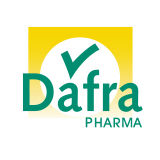预约演示
更新于:2025-07-15

Blue Eagle Immo NV
更新于:2025-07-15
概览
标签
感染
小分子化药
疾病领域得分
一眼洞穿机构专注的疾病领域
暂无数据
技术平台
公司药物应用最多的技术
暂无数据
靶点
公司最常开发的靶点
暂无数据
| 疾病领域 | 数量 |
|---|---|
| 感染 | 1 |
| 排名前五的药物类型 | 数量 |
|---|---|
| 小分子化药 | 1 |
| 排名前五的靶点 | 数量 |
|---|---|
| ATP2A1 x DHFR x DHPS x SERCA2 | 1 |
关联
1
项与 Blue Eagle Immo NV 相关的药物作用机制 ATP2A1抑制剂 [+3] |
在研适应症 |
最高研发阶段批准上市 |
首次获批国家/地区- |
首次获批日期- |
5
项与 Blue Eagle Immo NV 相关的临床试验NCT01054651
Open-label, Randomized Clinical Trial in Kenya to Determine the Effectiveness of Artesunate + Sulfamethoxypyrazine/Pyrimethamine Vs. Praziquantel in the Treatment of S. Mansoni in Children
The purpose of this study is to determine the comparative efficacy of artesunate plus sulfamethoxypyrazine-pyrimethamine versus Praziquantel in the treatment of school children infected with S.mansoni in western Kenya.
开始日期2009-10-01 |
申办/合作机构 |
NCT00764036
Prospective Open Uncontrolled Phase I Study of Compatibility, Safety&Pharmacokinetics of Artesunate, a Semisynthetic Derivative of Artemisinin From the Chinese Herb Artemisia Annua in Patients With Metastatic/Locally Advanced Breast Cancer
The purpose of this study is to evaluation the tolerability of an add-on therapy with artesunate with a duration of 4 weeks in patients with advanced breast cancer.
开始日期2008-10-01 |
申办/合作机构 |
NCT00510159
Randomized Double Blind Clinical Trial in Mali, Comparing the Effectiveness of Artesunate + Sulfamethoxypyrazine/Pyrimethamine Versus Praziquantel in the Treatment of S. Haematobium in Children
The purpose of this study is to evaluate the efficacy of praziquantel versus As+SMP (Co-Arinate FDC ®) in the treatment of Schistosoma haematobium in 6-15 year old Malian children. The nul-hypothesis in this study is that the combination of As+SMP is more effective than praziquantel in the treatment of S. haematobium infected children.
开始日期2007-08-01 |
申办/合作机构 |
100 项与 Blue Eagle Immo NV 相关的临床结果
登录后查看更多信息
0 项与 Blue Eagle Immo NV 相关的专利(医药)
登录后查看更多信息
2
项与 Blue Eagle Immo NV 相关的文献(医药)2015-01-01·EBioMedicine1区 · 医学
A Randomised, Double Blind, Placebo-Controlled Pilot Study of Oral Artesunate Therapy for Colorectal Cancer
1区 · 医学
ArticleOA
作者: Kumar, Devinder ; Jansen, Herwig ; Krishna, Sanjeev ; Ster, Irina Chis ; Cowan, Matt ; Saeed, Mohamed E M ; Efferth, Thomas ; Kremsner, Peter G ; Ganapathi, Senthil ; Finlayson, Caroline ; Kovacsevics, Hajnalka
BACKGROUND:
Artesunate is an antimalarial agent with broad anti-cancer activity in in vitro and animal experiments and case reports. Artesunate has not been studied in rigorous clinical trials for anticancer effects.
AIM:
To determine the anticancer effect and tolerability of oral artesunate in colorectal cancer (CRC).
METHODS:
This was a single centre, randomised, double-blind, placebo-controlled trial. Patients planned for curative resection of biopsy confirmed single primary site CRC were randomised (n = 23) by computer-generated code supplied in opaque envelopes to receive preoperatively either 14 daily doses of oral artesunate (200 mg; n = 12) or placebo (n = 11). The primary outcome measure was the proportion of tumour cells undergoing apoptosis (significant if > 7% showed Tunel staining). Secondary immunohistochemical outcomes assessed these tumour markers: VEGF, EGFR, c-MYC, CD31, Ki67 and p53, and clinical responses.
FINDINGS:
20 patients (artesunate = 9, placebo = 11) completed the trial per protocol. Randomization groups were comparable clinically and for tumour characteristics. Apoptosis in > 7% of cells was seen in 67% and 55% of patients in artesunate and placebo groups, respectively. Using Bayesian analysis, the probabilities of an artesunate treatment effect reducing Ki67 and increasing CD31 expression were 0.89 and 0.79, respectively. During a median follow up of 42 months 1 patient in the artesunate and 6 patients in the placebo group developed recurrent CRC.
INTERPRETATION:
Artesunate has anti-proliferative properties in CRC and is generally well tolerated.
2014-02-01·Journal of pharmaceutical analysis2区 · 医学
LC–UV/MS quality analytics of paediatric artemether formulations
2区 · 医学
ArticleOA
作者: Burvenich, Christian ; Jansen, Herwig ; Vergote, Valentijn ; D'Hondt, Matthias ; De Spiegeleer, Bart ; Vandercruyssen, Kirsten
A highly selective and stability-indicating HPLC-method, combined with appropriate sample preparation steps, is developed for β-artemether assay and profiling of related impurities, including possible degradants, in a complex powder for oral suspension. Following HPLC conditions allowed the required selectivity: a Prevail organic acid (OA) column (250 mm×4.6 mm, 5 μm), flow rate set at 1.5 mL/min combined with a linear gradient (where A=25 mM phosphate buffer (pH 2.5), and B=acetonitrile) from 30% to 75% B in a runtime of 60 min. Quantitative UV-detection was performed at 210 nm. Acetonitrile was applied as extraction solvent for sample preparation. Using acetonitrile-water mixtures as extraction solvent, a compartmental behaviour by a non-solving excipient-bound fraction and an artemether-solubilising free fraction of solvent was demonstrated, making a mobile phase based extraction not a good choice. Method validation showed that the developed HPLC-method is considered to be suitable for its intended regulatory stability-quality characterisation of β-artemether paediatric formulations. Furthermore, LC-MS on references as well as on stability samples was performed allowing identity confirmation of the β-artemether related impurities. MS-fragmentation scheme of β-artemether and its related substances is proposed, explaining the m/z values of the in-source fragments obtained.
100 项与 Blue Eagle Immo NV 相关的药物交易
登录后查看更多信息
100 项与 Blue Eagle Immo NV 相关的转化医学
登录后查看更多信息
组织架构
使用我们的机构树数据加速您的研究。
登录
或

管线布局
2026年02月28日管线快照
管线布局中药物为当前组织机构及其子机构作为药物机构进行统计,早期临床1期并入临床1期,临床1/2期并入临床2期,临床2/3期并入临床3期
批准上市
1
1
其他
登录后查看更多信息
当前项目
| 药物(靶点) | 适应症 | 全球最高研发状态 |
|---|---|---|
青蒿琥酯/乙胺嘧啶/磺胺林 ( ATP2A1 x DHFR x DHPS x SERCA2 ) | 恶性疟 更多 | 无进展 |
Oleylphosphocholine | 隐孢子虫病 更多 | 无进展 |
登录后查看更多信息
药物交易
使用我们的药物交易数据加速您的研究。
登录
或

转化医学
使用我们的转化医学数据加速您的研究。
登录
或

营收
使用 Synapse 探索超过 36 万个组织的财务状况。
登录
或

科研基金(NIH)
访问超过 200 万项资助和基金信息,以提升您的研究之旅。
登录
或

投资
深入了解从初创企业到成熟企业的最新公司投资动态。
登录
或

融资
发掘融资趋势以验证和推进您的投资机会。
登录
或

生物医药百科问答
全新生物医药AI Agent 覆盖科研全链路,让突破性发现快人一步
立即开始免费试用!
智慧芽新药情报库是智慧芽专为生命科学人士构建的基于AI的创新药情报平台,助您全方位提升您的研发与决策效率。
立即开始数据试用!
智慧芽新药库数据也通过智慧芽数据服务平台,以API或者数据包形式对外开放,助您更加充分利用智慧芽新药情报信息。
生物序列数据库
生物药研发创新
免费使用
化学结构数据库
小分子化药研发创新
免费使用

